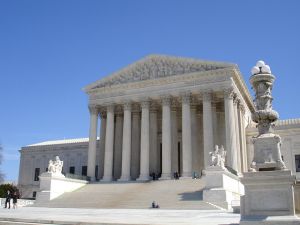Jefferson County Kentucky Prosecutors Appealing Ruling In DUI Case: DUIs Cause Serious Injures & Deaths Everyday Across Our Country.
 At 5:00 a.m. in January 2010 in Louisville, Kentucky, police were called to the scene of a parking lot where a man was passed out asleep in his truck. The keys were in the ignition, the truck was running, the man’s foot was on the accelerator, one hand was on the steering wheel, the other hand was on the gear shift, and the man was unconscious. The police officers reported hearing the engine running loudly from more than a block away, due to the truck being in park but having the gas pedal stepped on by the unconscious man. At the scene, the police had to break out the window because the man would not wake up and respond to the officers, and officers were afraid the vehicle would either caught on fire or jump into gear and propel itself through the parking lot.
At 5:00 a.m. in January 2010 in Louisville, Kentucky, police were called to the scene of a parking lot where a man was passed out asleep in his truck. The keys were in the ignition, the truck was running, the man’s foot was on the accelerator, one hand was on the steering wheel, the other hand was on the gear shift, and the man was unconscious. The police officers reported hearing the engine running loudly from more than a block away, due to the truck being in park but having the gas pedal stepped on by the unconscious man. At the scene, the police had to break out the window because the man would not wake up and respond to the officers, and officers were afraid the vehicle would either caught on fire or jump into gear and propel itself through the parking lot.
The man admitted to police that he had been drinking at 4th Street Live and the breathalyzer given at the scene showed the man was nearly 3 times the legal limit of impairment. He was dangerous and could have injured or killed someone in the state he was in and driving a car.
However, in October 2010, the Jefferson District Court Judge ruled that the man should not have been charged with DUI, because he was asleep and did not have physical control of the vehicle.
Judges in Kentucky have relied upon a 1986 Kentucky Court of Appeals Case when dealing with DUIs and facts similar to this case. In that Court ruling, the Appeals Court stated that there are four factors to consider when the intoxicated person is asleep in the vehicle, as to where a DUI has been committed. The factors to consider if the person should be charged with DUI are:
(1) Whether the suspect in the vehicle was awake or asleep;
(2) Whether the engine of the suspects vehicle was running;
(3) The vehicle’s location and all circumstances explaining how the vehicle got there; and (4) The intent of the person behind the wheel.
In this case, the Judge asked “how am I supposed to figure out what the intent is?” being critical of the 1986 Appeals Court’s Ruling of the 4th factor and the intent required finding of fact. The problem being that the Defendants claim that they were not intending to drive, but rather sleep off the alcohol in the car and run the motor to warm the interior of the vehicle.
However, this author disagrees with the Judge. When the Judge states how is he supposed to know the intent of the person, the response is that it boils down to the same as when a jury makes a finding of fact. He is to look at the facts, circumstances, and then draw conclusions. In this case it appears that the evidence very easily afforded the Judge a simple finding of intent to drive. Our justice system is not perfect, and requires conclusions to be drawn. This case is no different. Especially when we are talking about DUIs and lives at stake on the road, to error on the side of caution and find guilt in this instance would have been an easy call.
Everyday drivers driving while intoxicated cause serious injuries and deaths. Not only do we need the criminal laws to punish these offenders, but civil laws also help to punish and deter this dangerous conduct. When a person injures or kills others in DUI car crashes, the attorneys at the Ackerson Law Offices believe that they should be sued for every penny they have. The victims need compensation and punishment should include every possible means, which includes financially breaking these offenders.
People who drive while intoxicated put lives at risk, injure innocent people, kill people and destroy families’ lives. Pedestrians, bikers, motorcycle riders, bus drivers, and truck drivers are all at risk of having their lives forever changed by the reckless drunk driver.
For more information on the rights of people injured or killed in DUI auto accidents, including suing the drunk driver to financially make them pay and further punish them, contact the Ackerson Law Offices and attorney Brent T. Ackerson, (502) 882-5176, or by clicking here.
 Kentucky Personal Injury Attorney Blog
Kentucky Personal Injury Attorney Blog

